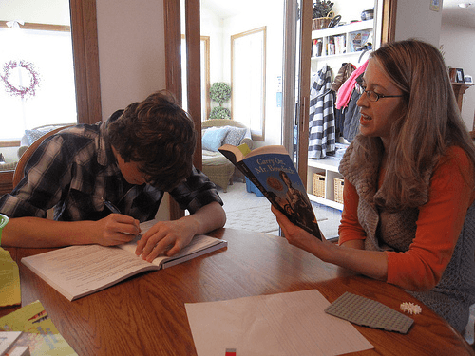In the battle against the Common Core, there is good news and bad news. The good news is that the proliferation of these top-down education standards is driving a massive increase in the number of homeschoolers. Families are realizing that if they want their children to benefit from individualized education, if they want to protect their children from data mining, and if they want to be free of the Common Core’s one-size-fits-all approach to education, homeschooling (and certain private schools) is the only way to go.
The bad news is, as education expert Diane Ravitch wrote prophetically about the Common Core in February, 2013, “No one will escape their reach, whether they attend public or private school.” She didn’t say “or homeschool,” but she didn’t need to. We’re already seeing trends which – if we’re not successful in defeating the Common Core – will eventually threaten homeschool freedom. Already, some public schools have tried – unsuccessfully for now – to require local homeschool families to follow the Common Core.
The Home School Legal Defense Association was founded in 1983, with one mission: to defend and advance homeschool freedom. While we applaud the parents and organizations fighting to regain parental and local control over public schools, that is not our fight. But when the Common Core came out, we knew that, as Benjamin Franklin is reputed to have said at the signing of the Declaration of Independence, “We must all hang together, or assuredly we shall all hang separately.”
We see three ways in which the Common Core threatens homeschool freedom. The first way is through expanding state longitudinal databases. While expanded databases are not technically part of the Common Core, they are being advanced by many of the same people and organizations behind the Common Core. The designers of these new data systems fully intend for homeschool and private school students to be part of this massive data collection.
The second way is through shifting college admissions expectations. The National Governors Association, instrumental in writing the Common Core, emphasizes that the Common Core standards for college readiness will be used by institutions of higher learning to determine whether a student is ready to enroll in a postsecondary course.
The third way is through revised standardized tests which are being aligned with the Common Core. The SAT, ACT, GED, and other national standardized achievement tests have been or are in the process of being redesigned to incorporate practices and skills emphasized by the Common Core. Students who are not educated according to the Common Core could soon be at a disadvantage if standardized tests employ techniques stressed by the Common Core.
The success of homeschooling should remind us that children do best academically when the people closest to them are in charge of their education. Every child is unique, with special abilities and gifts. Parents, teachers, and local school boards are uniquely positioned to make decisions on how children should learn. The Common Core takes these decisions away even from state departments of education, and places them in the hands of educational elites in Washington, DC. Their hearts may be in the right place, but they will never know your child like you do.
The Irish poet William Butler Yeats said it best: “Education is not the filling of a pail, but the lighting of the fire.” That is what we should strive for. And it will never come from nationalized standards foisted upon states, school boards, teachers, and parents by national leaders. It will come from parents who love their children and instill a love of learning in them.
William A. Estrada is an attorney at the Home School Legal Defense Association, and is HSLDA’s Director of Federal Relations.

COMMENTS
Please let us know if you're having issues with commenting.